|
"She looks a bit like you,” says Emma, pointing at a woman being interviewed on the television. She has a glossy helmet of dark hair and Michael Caine glasses. “Don’t you think?” “Nothing like me!” Flo is not really looking; she is tidying the already tidy room, brusquely plumping cushions. It is a compact space, everything in it a bit shabby, but it is very neat. “Hey, I’ve not finished that.” Flo is clearing away Emma’s half-empty mug of tea. “Why don’t you just chill? Look, this is interesting. She’s talking about how she was expelled from school and missed out on university and now she’s written a bestseller – she never even did A-Levels.” Flo is rubbing frantically with kitchen paper at an indelible mark on the table. “Some people have all the luck.” “Sounds like she grafted for it.” Flo sucks her teeth, continuing to rub. The stain refuses to yield. She has read the book, refused to enjoy it, broke the bank to buy the hardback. “It’s not all that.” “You’ve read it?” “Yup.” Flo claps shut the conversation. On television the author moves her hands gracefully, as if conducting an orchestra. “...When a man writes about love,” she is saying, “it’s a profound exploration of the human condition; when a woman does, it’s dismissed as romance.” She spits the last word out and then releases a brief, abandoned guffaw. She is not beautiful but there is something compelling about her and that contagious laugh. Emma realises the similarity she had noticed between this woman and her friend is only superficial, as Flo is one of those almost invisible women – not like that at all. “A bit of a drip,” Emma’s boyfriend had said of her, when they’d first met. “But she’s nice.” Emma had jumped to her defence. “Exactly!” was what he’d replied. The interviewer is nodding and smiling with too-white teeth. “There’s not much love lost between the family members in the novel is there?” “Just because people share genetic material, doesn’t mean they necessarily feel deeply for one another,” comes the reply. “Besides,” – she points a finger upward, as if about to deliver a punchline – “bland happiness doesn’t make for a good story.” “She’s got a point,” says Emma. “Do you think her skirt is real leather or that other stuff?” “I couldn’t care less,” snaps Flo. “No need to bite my head off!” Emma notices Flo crumple slightly. “What’s the matter?” “If you must know, she used to be my sister.” Emma grabs the remote, pressing pause. “What that woman, the writer?” She points to the frozen author and looks at her friend, who is standing by the door looking as if something terrible is about to happen. “And what do you mean used to be? I didn’t even know you had a sister.” Flo feels as if a long-unexploded bomb has been discovered in her body and any false movement might set it off. She puts a hand on the doorjamb to steady herself. “But how come you’ve never...” Emma’s curiosity is fizzing up but she can see her friend’s distress. “Do you want to talk about it?” She presses the off button, extinguishing the sister. Silence billows. Very carefully, Flo goes to sit beside Emma, who puts an arm around her. She is as unyielding as cold Plasticine. “She ran away from home when she was 15.” Flo is scrunching her hands together, leaving deep nail marks in the flesh. “Never came back. I was 10. It completely destroyed the family.” “Oh God! Is that why your mother...” Emma is unsure of how to say it. “You know...” “Drank?” It comes out with a sigh. “Actually, I can’t remember a time when she didn’t.” “So...” Emma is about to ask whether that was the reason the sister ran away but something tells her not to. “What’s she called?” Flo senses that if she says the name it will detonate the thing inside her and force all her feelings out into the room. It will blow holes through the thin plasterboard walls and smash the windows; they will be deafened and maimed by flying shrapnel; the house will be shaken to its shallow foundations; her sleeping children will be thrown from their beds; her husband will return to devastation. “I can’t stand her.” Emma is at a loss, unsure what to do with the discovery of this hated sister. “Did she bully you?” “She used to call me Fluff.” Flo expels a small, bitter noise – not quite a laugh. “But that’s actually rather sweet.” “It’s just...” Flo cannot explain how insignificant that pet name made her feel. “She was the one who got away.” “I see.” Emma really does see now. She has always been aware of an intrinsic melancholy in Flo, hidden by a veneer of order – the effect of the drinking mother, she’d always assumed. But the sister didn’t seem like that at all. On the contrary, she was ebullient, alive, “sorted”, people might call her. “Does she have children? I mean... do you see them?” “Some people are too selfish for kids.” She makes it seem as if the absence of nephews and nieces is a personal slight. “Look, do you mind if we don’t talk about it?” Flo gets up and goes towards the door. “Cup of tea?” When Flo has left the room Emma puts the television back on, turning the volume down so it can’t be heard from the kitchen. “You must be very proud of your achievements,” says the interviewer. “Not proud exactly, but it’s a joy to earn a living doing the thing you love.” The sister pauses, looking at her interlocutor and then out, directly towards Emma as if they are in the room together, as if she can see her. “But it’s come at a price.” And there’s that guffaw again. 'Fluff' was first published in The Sunday Express's S Magazine – 10th January 2016 http://www.express.co.uk/entertainment/books/632456/Short-story-by-Elizabeth-Fremantle Elizabeth Fremantle's latest novel Watch the Lady is published by Penguin – find it on Amazon
0 Comments
Sometimes the death of a public figure touches the public profoundly and with an inexplicable force, as if the deceased was a family member or lover. The mass outpouring of grief in the wake of David Bowie's death is one such case, echoing that after Princess Diana's eighteen years before. These deaths seemed to provoke a general feeling of extreme shock, disbelief and loss, creating its own momentum, spreading and causing people to crave closeness and to congregate. Usually such responses are to deaths that are sudden; even Bowie's elegantly understated death, though after a prolonged illness, was unexpected by the public, and nothing could have prepared us for the grim thunderbolt of Diana's violent death, which would not have been wished on her even by the most die-hard republican. It is as if particular individuals carry a kind of supernatural quality that, in our minds, makes them seem indestructible, making it impossible for us to imagine them not existing. The death in 1926 of Rudolph Valentino provoked a similar reaction, and it is not insignificant that Valentino was one of the first real icons of the cinema. The process of watching him week after week, beguiling his female co-stars on the silver screen, gave people (in his case almost exclusively young women) the intimate sense that it was they being seduced – and in some ways this was the case: it could be said that they were the subjects of mass hypnosis. Many have argued that the modern media, and the way it reaches us ever more intimately, is mesmerisation on a grand scale. So the seductive cinematic renditions of Valentino, spoke directly to single women, as Princess Diana's predicament chimed with all those in unhappy marriages and Bowie opened the minds of, baby-boomers with his courageous free spirit. So we could say that this is a modern phenomenon, borne of technology and the way it serves up the lives of our icons to us, so we feel we know them. Alternatively we could see it as a desire to worship in a western world that has largely rejected conventional religion. The death of Jesus, significantly, resonates only mutedly two thousand years on. Perhaps we simply seek idols that represent us better and it is possible that we have a need to congregate and mourn together, to feel a sense of social cohesion in a society that is increasingly atomised. But none of this explains a similar response to the death of a poet in 1586. Now, Early Modern English society didn't conform to any of my above explanations: it was a highly religious culture, with people who were prepared to die for their beliefs, there was little dissemination of news in a population that was largely unable to read well, with town cryers, crude news sheets, ballads and gossip fulfilling the need for information. Given we are remembering the 400th anniversary of the death of Shakespeare this year, you could be forgiven for supposing it was he who provoked such a general flood of grief. And yet it was the death of a man who is now almost forgotten, save for in the seminars of university English departments, Sir Philip Sidney, that resonated with English people, causing them to turn out in their weeping thousands to watch his funeral cortege pass by. Sidney is a character in my novel Watch the Lady and so I have pondered deeply on what it was that caused this outpouring and I have concluded that perhaps we have more in common with our Early Modern counterparts than we choose to believe. Sidney was a thinker and a poet but moreover he was a soldier who died on the battlefield, aged only 31, fighting for his religious beliefs and the security of England. He was also a lover: his sonnet cycle (the first in English) Astrophel and Stella, charted his tortured, and probably unfulfilled, love for the married Lady Rich. He was no royal favourite, like Lady Rich's unscrupulous brother, Essex. He was a man who dared to speak his mind, offering his opinion too often to curry favour with a Queen, who didn't like to be challenged on her choices. But he was honourable and constant and courageous embodying the qualities of chivalry in a newly dissembling, dog-eat-dog world of spy craft and shady political deals in which there was little space for archaic courtly codes. Perhaps our icons represent things many hold dear – Bowie standing for individuality and freedom; Diana for the old-fashioned ideas about untouchable royal princesses fed to us in youth; Valentino for the notion of the enigmatic masculine lover; Sidney for chivalry – things that we feel are passing away. And the sense that such ideas are fading is brought into sharp relief when their representative dies. The loss of Bowie reminds us starkly that our culture is becoming increasingly homogenous, our freedom curtailed by constant scrutiny. Traditionalists perhaps sensed in the passing of Diana the loss of an idea of sacrosanct royalty that could never be replaced by Kate Middleton and her ilk. Valentino's death came at a time when women were beginning to seek equality with men and outdated gender orders were being challenged. Sidney's death occurred when the notion of the individual was taking hold, marking the beginnings of modern culture; he represented an age and values that were almost gone. Perhaps it is only in the mourning of such figures that we are able to also mourn the passing of deeper, more abstract ideas we hold dear.  |
Subscribe to Elizabeth's quarterly newsletter below:Archives
June 2018
Categories
All
|


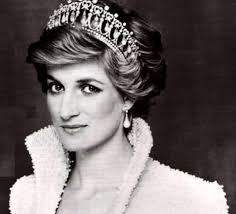

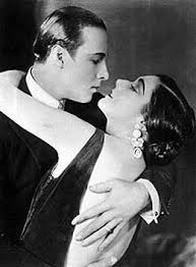
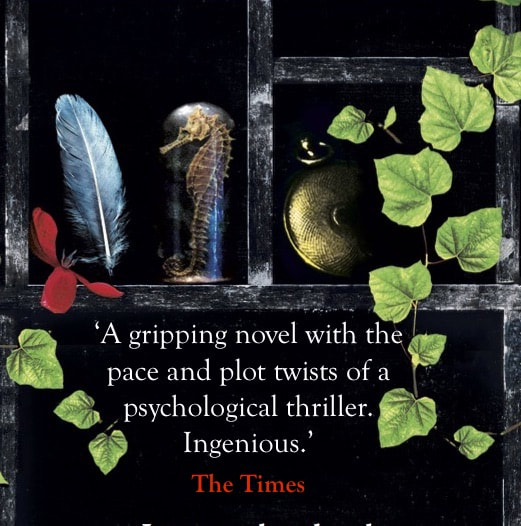
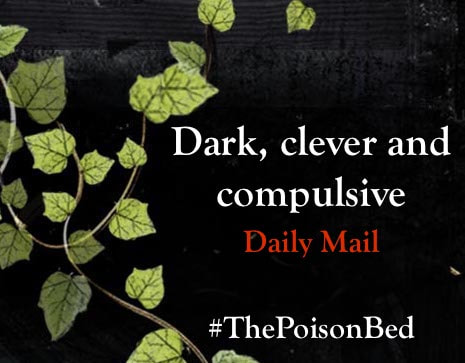
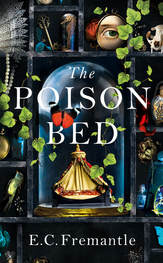

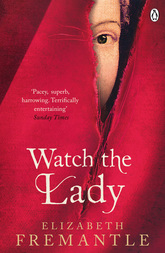
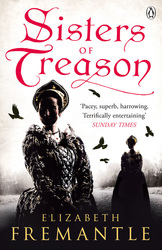
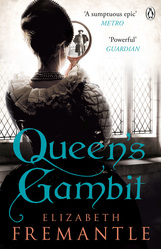
 RSS Feed
RSS Feed
